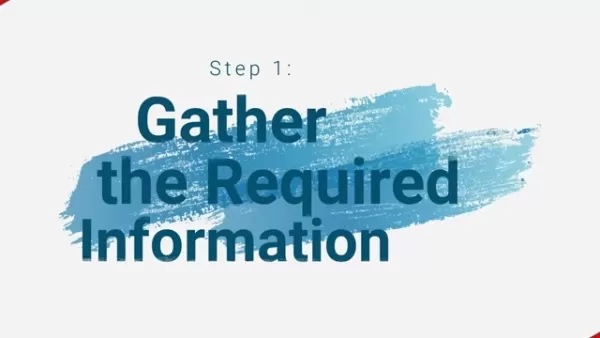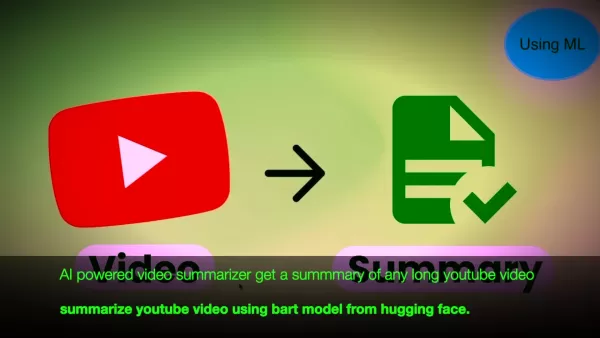AI-Powered Fan Fiction Sparks Debate as New Creative Frontier
The AI Fan Fiction Revolution: Creativity, Controversy, and What's Next
Artificial intelligence is reshaping storytelling in fascinating ways—and nowhere is this more evident than in fan fiction. What started as a human-driven creative outlet is now being transformed by AI, sparking both excitement and heated debates. Can machines truly craft compelling stories? Who owns AI-generated content? And what does this mean for the future of fandom?
Let’s dive into this evolving landscape, exploring the technology, ethical dilemmas, and practical applications of AI in fan fiction.
How AI Fan Fiction Works
AI-generated fan fiction isn’t magic—it’s built on powerful machine learning models trained on vast amounts of text. These models analyze patterns in existing stories, learning how characters speak, how plots develop, and even how to mimic specific writing styles.
The AI Storytelling Process
- Data Collection – AI models are fed massive datasets, including books, scripts, and existing fan fiction.
- Training – Using deep learning, the AI identifies narrative structures, character dynamics, and stylistic nuances.
- Prompting – Users input requests like "Write a Harry Potter story where Draco Malfoy joins the Order of the Phoenix."
- Generation – The AI crafts a response, sometimes requiring multiple refinements for coherence.
- Human Refinement – Writers often edit AI output to add depth, fix inconsistencies, or enhance emotional impact.

While some stories are entirely AI-generated, many writers use AI as a co-creator—brainstorming ideas, overcoming writer’s block, or expanding on rough drafts.
The Ethical and Legal Minefield
AI fan fiction isn’t without controversy. Key concerns include:
Who Owns AI-Generated Stories?
- Current copyright laws protect human authors—so if an AI writes a story, who holds the rights? The programmer? The user who prompted it? The original IP owner?
- Some argue AI content should be public domain, while others believe prompters deserve credit.
Is It Fair Use or Copyright Infringement?
- Fan fiction already exists in a legal gray area. AI-generated versions complicate matters further.
- Courts may soon decide whether training AI on copyrighted works constitutes fair use.

Does AI Lack "Real" Creativity?
Critics say AI stories lack:
✔ Emotional depth
✔ Originality (since they remix existing works)
✔ The human touch that makes fan fiction feel personal
But supporters argue AI can enhance creativity, helping writers explore new angles faster.
How to Get Started with AI Fan Fiction
Interested in trying AI-assisted writing? Here’s how:
1. Choose the Right Tool
Platform Best For Pricing Sudowrite Creative writing, character development $10-$100/month NovelAI Long-form storytelling, style customization $10-$25/month Jasper Quick drafts, marketing-style content $49+/month ChatGPT Free experimentation, idea generation Free/Paid tiers
2. Craft Strong Prompts
Bad prompt: "Write a Star Wars story."
Good prompt: "Write a 1,000-word Star Wars story where Obi-Wan survives Mustafar, altering the events of the original trilogy. Focus on his internal conflict and how the Rebellion changes."

3. Edit & Refine
AI output often needs:
✔ Better pacing
✔ More natural dialogue
✔ Emotional depth
✔ Consistency fixes
Treat AI as a first-draft assistant, not a replacement for human creativity.
The Future: AI as a Storytelling Partner
AI won’t replace human writers—but it’s becoming a powerful collaborator. Possible future developments:
- Personalized Fan Fiction – AI could generate stories tailored to a reader’s preferences (e.g., "More Snape backstory, less romance").
- Interactive Stories – Imagine AI-powered "choose-your-own-adventure" fan fiction.
- Ethical Guidelines – The industry may establish rules around AI-generated content and copyright.

FAQs
Is AI fan fiction legal?
It’s murky. Most fan fiction exists in a legal gray area, and AI complicates it further. Avoid monetizing AI-generated works based on copyrighted IP.
Can AI write better than humans?
Not yet. AI excels at structure and speed but struggles with emotional depth and originality.
Will AI kill traditional fan fiction?
Unlikely. Many fans still prefer human-written stories—AI is just another tool in the toolbox.
Final Thoughts
AI is changing fan fiction, but it’s not replacing human creativity—it’s augmenting it. Whether you see AI as a threat or a tool, one thing’s clear: storytelling is evolving, and the future will be a blend of human imagination and machine assistance.
What do you think? Will AI make fan fiction better—or just blander? Let us know in the comments!

Related article
 AI-Powered Cover Letters: Expert Guide for Journal Submissions
In today's competitive academic publishing environment, crafting an effective cover letter can make the crucial difference in your manuscript's acceptance. Discover how AI-powered tools like ChatGPT can streamline this essential task, helping you cre
AI-Powered Cover Letters: Expert Guide for Journal Submissions
In today's competitive academic publishing environment, crafting an effective cover letter can make the crucial difference in your manuscript's acceptance. Discover how AI-powered tools like ChatGPT can streamline this essential task, helping you cre
 US to Sanction Foreign Officials Over Social Media Regulations
US Takes Stand Against Global Digital Content Regulations
The State Department issued a sharp diplomatic rebuke this week targeting European digital governance policies, signaling escalating tensions over control of online platforms. Secretary Marco
US to Sanction Foreign Officials Over Social Media Regulations
US Takes Stand Against Global Digital Content Regulations
The State Department issued a sharp diplomatic rebuke this week targeting European digital governance policies, signaling escalating tensions over control of online platforms. Secretary Marco
 Ultimate Guide to AI-Powered YouTube Video Summarizers
In our information-rich digital landscape, AI-powered YouTube video summarizers have become indispensable for efficient content consumption. This in-depth guide explores how to build a sophisticated summarization tool using cutting-edge NLP technolog
Comments (0)
0/200
Ultimate Guide to AI-Powered YouTube Video Summarizers
In our information-rich digital landscape, AI-powered YouTube video summarizers have become indispensable for efficient content consumption. This in-depth guide explores how to build a sophisticated summarization tool using cutting-edge NLP technolog
Comments (0)
0/200
The AI Fan Fiction Revolution: Creativity, Controversy, and What's Next
Artificial intelligence is reshaping storytelling in fascinating ways—and nowhere is this more evident than in fan fiction. What started as a human-driven creative outlet is now being transformed by AI, sparking both excitement and heated debates. Can machines truly craft compelling stories? Who owns AI-generated content? And what does this mean for the future of fandom?
Let’s dive into this evolving landscape, exploring the technology, ethical dilemmas, and practical applications of AI in fan fiction.
How AI Fan Fiction Works
AI-generated fan fiction isn’t magic—it’s built on powerful machine learning models trained on vast amounts of text. These models analyze patterns in existing stories, learning how characters speak, how plots develop, and even how to mimic specific writing styles.
The AI Storytelling Process
- Data Collection – AI models are fed massive datasets, including books, scripts, and existing fan fiction.
- Training – Using deep learning, the AI identifies narrative structures, character dynamics, and stylistic nuances.
- Prompting – Users input requests like "Write a Harry Potter story where Draco Malfoy joins the Order of the Phoenix."
- Generation – The AI crafts a response, sometimes requiring multiple refinements for coherence.
- Human Refinement – Writers often edit AI output to add depth, fix inconsistencies, or enhance emotional impact.

While some stories are entirely AI-generated, many writers use AI as a co-creator—brainstorming ideas, overcoming writer’s block, or expanding on rough drafts.
The Ethical and Legal Minefield
AI fan fiction isn’t without controversy. Key concerns include:
Who Owns AI-Generated Stories?
- Current copyright laws protect human authors—so if an AI writes a story, who holds the rights? The programmer? The user who prompted it? The original IP owner?
- Some argue AI content should be public domain, while others believe prompters deserve credit.
Is It Fair Use or Copyright Infringement?
- Fan fiction already exists in a legal gray area. AI-generated versions complicate matters further.
- Courts may soon decide whether training AI on copyrighted works constitutes fair use.

Does AI Lack "Real" Creativity?
Critics say AI stories lack:
✔ Emotional depth
✔ Originality (since they remix existing works)
✔ The human touch that makes fan fiction feel personal
But supporters argue AI can enhance creativity, helping writers explore new angles faster.
How to Get Started with AI Fan Fiction
Interested in trying AI-assisted writing? Here’s how:
1. Choose the Right Tool
| Platform | Best For | Pricing |
|---|---|---|
| Sudowrite | Creative writing, character development | $10-$100/month |
| NovelAI | Long-form storytelling, style customization | $10-$25/month |
| Jasper | Quick drafts, marketing-style content | $49+/month |
| ChatGPT | Free experimentation, idea generation | Free/Paid tiers |
2. Craft Strong Prompts
Bad prompt: "Write a Star Wars story."
Good prompt: "Write a 1,000-word Star Wars story where Obi-Wan survives Mustafar, altering the events of the original trilogy. Focus on his internal conflict and how the Rebellion changes."

3. Edit & Refine
AI output often needs:
✔ Better pacing
✔ More natural dialogue
✔ Emotional depth
✔ Consistency fixes
Treat AI as a first-draft assistant, not a replacement for human creativity.
The Future: AI as a Storytelling Partner
AI won’t replace human writers—but it’s becoming a powerful collaborator. Possible future developments:
- Personalized Fan Fiction – AI could generate stories tailored to a reader’s preferences (e.g., "More Snape backstory, less romance").
- Interactive Stories – Imagine AI-powered "choose-your-own-adventure" fan fiction.
- Ethical Guidelines – The industry may establish rules around AI-generated content and copyright.

FAQs
Is AI fan fiction legal?
It’s murky. Most fan fiction exists in a legal gray area, and AI complicates it further. Avoid monetizing AI-generated works based on copyrighted IP.
Can AI write better than humans?
Not yet. AI excels at structure and speed but struggles with emotional depth and originality.
Will AI kill traditional fan fiction?
Unlikely. Many fans still prefer human-written stories—AI is just another tool in the toolbox.
Final Thoughts
AI is changing fan fiction, but it’s not replacing human creativity—it’s augmenting it. Whether you see AI as a threat or a tool, one thing’s clear: storytelling is evolving, and the future will be a blend of human imagination and machine assistance.
What do you think? Will AI make fan fiction better—or just blander? Let us know in the comments!

 AI-Powered Cover Letters: Expert Guide for Journal Submissions
In today's competitive academic publishing environment, crafting an effective cover letter can make the crucial difference in your manuscript's acceptance. Discover how AI-powered tools like ChatGPT can streamline this essential task, helping you cre
AI-Powered Cover Letters: Expert Guide for Journal Submissions
In today's competitive academic publishing environment, crafting an effective cover letter can make the crucial difference in your manuscript's acceptance. Discover how AI-powered tools like ChatGPT can streamline this essential task, helping you cre
 US to Sanction Foreign Officials Over Social Media Regulations
US Takes Stand Against Global Digital Content Regulations
The State Department issued a sharp diplomatic rebuke this week targeting European digital governance policies, signaling escalating tensions over control of online platforms. Secretary Marco
US to Sanction Foreign Officials Over Social Media Regulations
US Takes Stand Against Global Digital Content Regulations
The State Department issued a sharp diplomatic rebuke this week targeting European digital governance policies, signaling escalating tensions over control of online platforms. Secretary Marco
 Ultimate Guide to AI-Powered YouTube Video Summarizers
In our information-rich digital landscape, AI-powered YouTube video summarizers have become indispensable for efficient content consumption. This in-depth guide explores how to build a sophisticated summarization tool using cutting-edge NLP technolog
Ultimate Guide to AI-Powered YouTube Video Summarizers
In our information-rich digital landscape, AI-powered YouTube video summarizers have become indispensable for efficient content consumption. This in-depth guide explores how to build a sophisticated summarization tool using cutting-edge NLP technolog





























